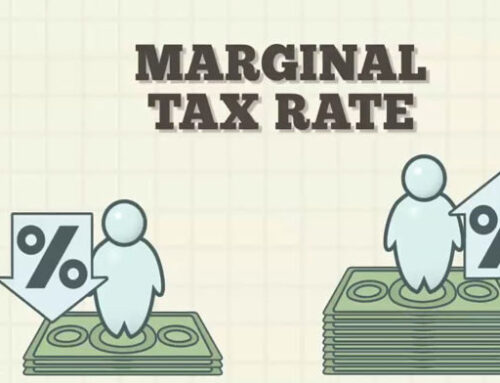Navigating Tax Returns for Bloggers and Influencers
The Complexity of Tax Filing for Tastemakers Being a blogger or influencer comes with numerous rewards and perks, but when it comes to taxes, these creative professionals face similar complexities as self-employed individuals. Tax filing for bloggers and influencers tends to be a bit more intricate compared to those with traditional employment arrangements. It’s important to remember that the deadline for filing your income tax return remains June 15, 2023, while the deadline for paying any balances and instalments is May 1, 2023.
Understanding the Unique Tax Returns for Bloggers Landscape As a blogger or influencer, your tax situation may involve various factors that require careful consideration. Here are some key points to keep in mind:
- Self-Employment Status: Bloggers and influencers are typically classified as self-employed, which means you are responsible for reporting your income and expenses accurately.
- Income Reporting: You must report all income earned from sponsored posts, brand collaborations, affiliate marketing, or any other sources related to your online presence.
- Deductible Expenses: Explore the range of deductible expenses that you can claim, such as website hosting fees, equipment purchases, advertising costs, travel expenses for conferences, and even portions of your home used as a workspace.
- Record-Keeping: Maintain meticulous records of your income and expenses throughout the year to ensure accurate reporting and to maximize potential deductions.
- GST/HST Considerations: If your blogging or influencer activities generate significant income, you may need to register for the Goods and Services Tax/Harmonized Sales tax returns for bloggers (GST/HST) and collect these taxes from your clients or customers.
- Tax Credits and Benefits: Familiarize yourself with the various tax returns for bloggers credits and benefits available to self-employed individuals, such as the Canada Workers Benefit (CWB) or the Home Office Expense Deduction.
Seeking Professional Guidance Given the intricacies of tax filing for bloggers and influencers, it can be beneficial to seek guidance from a tax professional who specializes in self-employment or small business tax returns for bloggers. They can help ensure accurate reporting, identify potential deductions, and provide personalized advice tailored to your unique situation.
Remember, while the tax filing process may seem more complex for tastemakers, staying informed and seeking professional assistance can help you navigate the tax landscape more confidently.

Filing Taxes as a Blogger or Influencer: A Comprehensive Guide
Introduction: Being a blogger or influencer can be an exciting and rewarding career path. However, when it comes to taxes, tastemakers face similar complexities as self-employed individuals. Filing taxes as a blogger or influencer requires navigating specific considerations. It’s important to note that the deadline for filing your income tax return is June 15, 2023, and the deadline for paying balances and instalments is May 1, 2023.
Here’s a comprehensive guide on how to file your tax returns for bloggers accurately as a blogger or influencer:
Determining Reportable Income:
- Regular Income: If you earn income regularly from your blogging or influencer activities, you are required to report it on your tax return. Regular income refers to consistent earnings from activities such as publishing blog posts, creating sponsored content, or generating income through your online presence.
- Occasional Income: If you earn income sporadically, such as writing a few blog posts or selling a few products online, it may not be considered regular income. In such cases, reporting requirements may not apply. However, it’s essential to consult a tax returns for bloggers professional to determine whether reporting is necessary.
Understanding Deductible Expenses:
- Business Expenses: As a blogger or influencer, you may be eligible to claim various business expenses to reduce your taxable income. Examples include website hosting fees, equipment purchases, content creation costs, advertising expenses, and travel expenses for industry-related events for tax returns for bloggers.
- Home Office Expenses: If you use a designated area in your home as a workspace for your blogging or influencer activities, you may be able to claim a portion of your home expenses, such as rent or utilities, as a deduction. Consult a tax professional for guidance on calculating and claiming home office expenses.
Maintaining Detailed Records:
- Income Records: Keep thorough records of your income, including invoices, payment receipts, and any relevant documents provided by brands or sponsors.
- Expense Documentation: Maintain organized records of your business expenses, including receipts, invoices, and bank statements. It’s important to have supporting documentation for all claimed deductions.
Seeking Professional Assistance: Given the complexities of tax filing for bloggers and influencers, it’s advisable to consult a tax professional who specializes in self-employment or small business taxes. They can provide personalized guidance, help maximize deductions, and ensure compliance with tax regulations.
Also read: Are you at risk of being penalized with the Underused Housing Tax?
Maximizing Income Reporting:
When filing taxes as a blogger or influencer, it’s crucial to include all sources of income, such as payments for services, products received in exchange for visibility, sponsored trips, and advertising revenue from platforms like Google AdSense. Even items received as gifts or samples should be reported based on their market value.
Deductible Business Expenses:
As a content creator, you can deduct various expenses related to your work. These may include hosting costs, internet access fees, search engine optimization services, and software fees like Adobe Photoshop. Additionally, equipment purchases such as cell phones, laptops, and cameras can be deducted, but their costs should be depreciated over several years. If you use your home as your primary workspace, you may claim a portion of home expenses like insurance, property taxes, and mortgage interest, based on the percentage of space exclusively used for business purposes.
Handling Income in Foreign Currency:
Influencers often receive payments in foreign currencies, particularly US dollars. It’s essential to convert all income earned in foreign currency into Canadian dollars before reporting it on your tax returns for bloggers. The Bank of Canada’s annual exchange rate table can help with this conversion.
Utilize Tax Calculators:
To gain a better understanding of your tax returns for bloggers situation, especially as a self-employed individual, it’s beneficial to use tax calculators. These tools can provide an estimate of the amount you may owe in taxes, helping you plan accordingly.
Learn from Past Experiences: As you file your tax returns for bloggers for the first few times, take note of what worked well and what didn’t. Avoid repeating the same mistakes in subsequent years. Consider configuring your accounting software, if applicable, to streamline the tax preparation process and make future tax seasons more enjoyable.
Also read: Tax Impact of Ride and Accommodation Sharing

Conclusion:
Filing taxes as a tax returns for bloggers or influencer requires attention to detail and an understanding of specific considerations. By accurately reporting your income, identifying deductible expenses, and maintaining detailed records, you can navigate the tax filing process more effectively. Seeking professional assistance can provide further guidance and ensure compliance with tax laws. Stay informed and proactive to manage your tax returns for bloggers obligations as a tastemaker in the digital world.
Recent Posts
FAQ
How can claiming business expenses benefit bloggers and influencers?
Claiming business expenses allows bloggers and influencers to reduce their taxable income, thereby potentially lowering their overall tax liability. By deducting legitimate business expenses, they can effectively manage their finances and keep more of their earnings.
Can bloggers and influencers claim travel expenses?
Yes, bloggers and influencers can claim travel expenses that are directly related to their business activities. This includes expenses for attending industry-related events, conferences, or meetings where they can network, learn, and promote their work.



